Table of Contents
- FREE 10+ Research Investigation Templates in PDF
- 1. Research Art of Scientific Investigation Template
- 2. Research Investigation Layout
- 3. Research Investigation Report
- 4. Psychology Research Investigation Template
- 5. Social Research Method of Investigation Template
- 6. Research Misconduct Recommendation Investigation
- 7. Consensual Qualitative Research Investigation Template
- 8. Research Systematic Investigation Template
- 9. Procedure for Investigation of Misconduct in Research
- 10. Sports Benefits Research Investigation Template
- 11. Design Research Investigation Template
- What is Research?
- What Are the Forms of Research?
- How to Conduct Research?
FREE 10+ Research Investigation Templates in PDF
Research refers to the creative and systematic work undertaken to increase knowledge inventory, including the knowledge of people, culture and society, and the use of this knowledge inventory to develop new applications. In other words, research refers to a series of measures used to obtain and interpret information to improve our understanding of a subject or comment.

FREE 10+ Research Investigation Templates in PDF
1. Research Art of Scientific Investigation Template
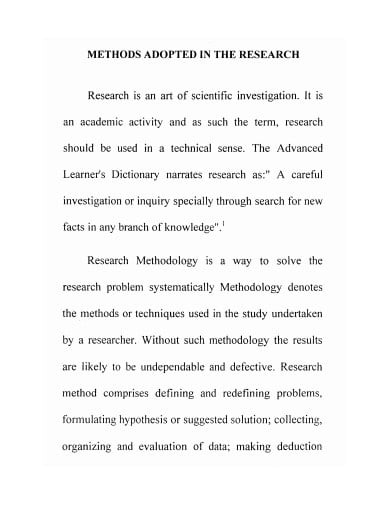 shodhganga.inflibnet.ac.in
shodhganga.inflibnet.ac.in2. Research Investigation Layout
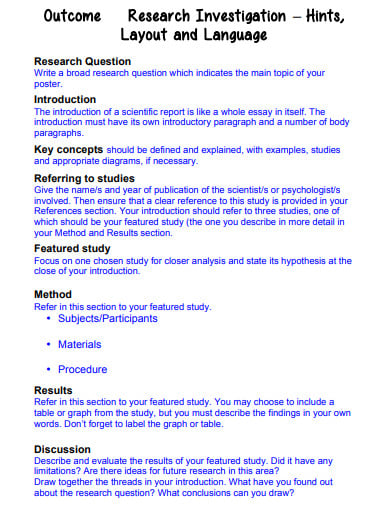 psychologyrats.edublogs.org
psychologyrats.edublogs.org3. Research Investigation Report
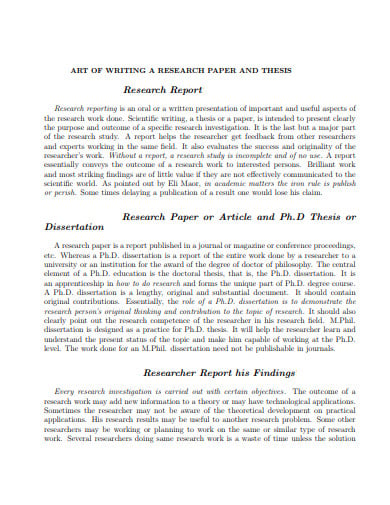 arxiv.org
arxiv.org4. Psychology Research Investigation Template
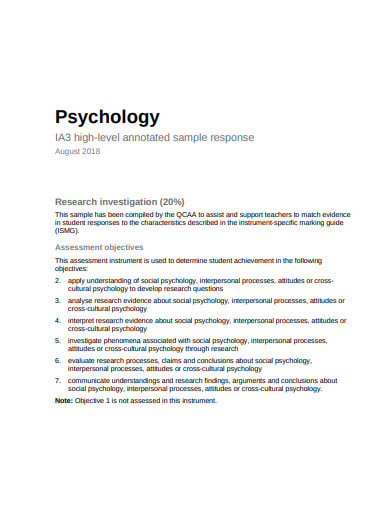 qcaa.qld.edu.au
qcaa.qld.edu.au5. Social Research Method of Investigation Template
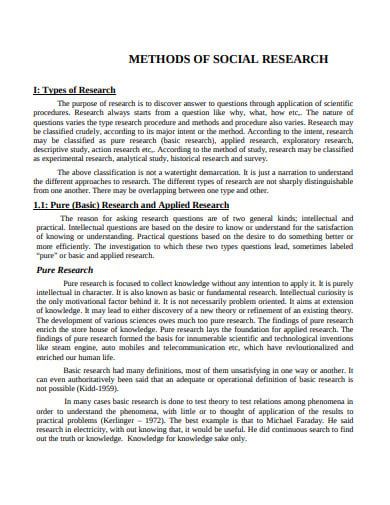 universityofcalicut.info
universityofcalicut.info6. Research Misconduct Recommendation Investigation
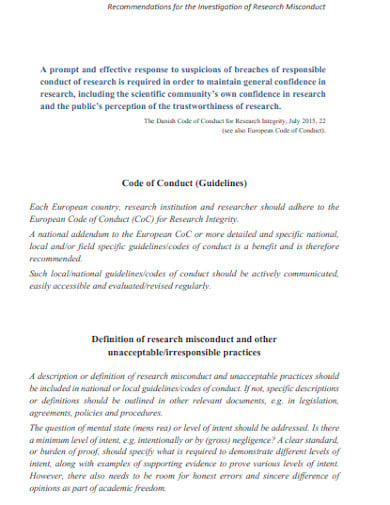 enrio.eu
enrio.eu7. Consensual Qualitative Research Investigation Template
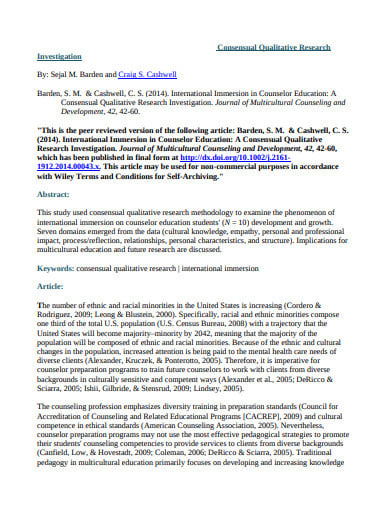 libres.uncg.edu
libres.uncg.edu8. Research Systematic Investigation Template
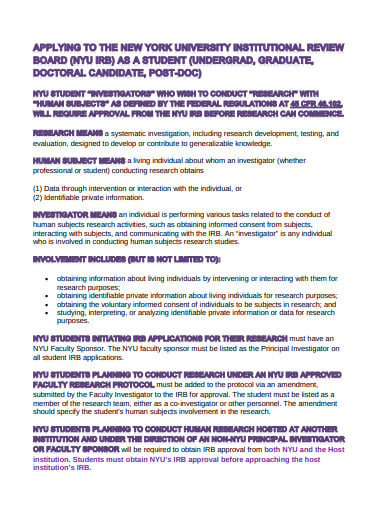 nyu.edu
nyu.edu9. Procedure for Investigation of Misconduct in Research
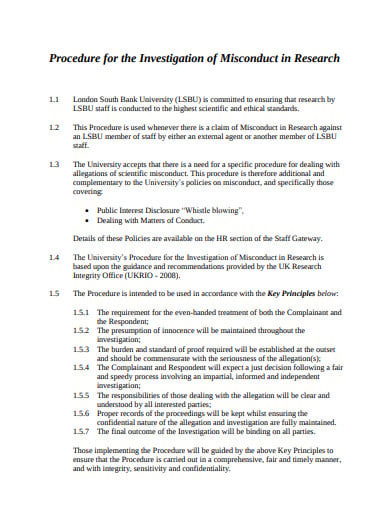 lsbu.ac.uk
lsbu.ac.uk10. Sports Benefits Research Investigation Template
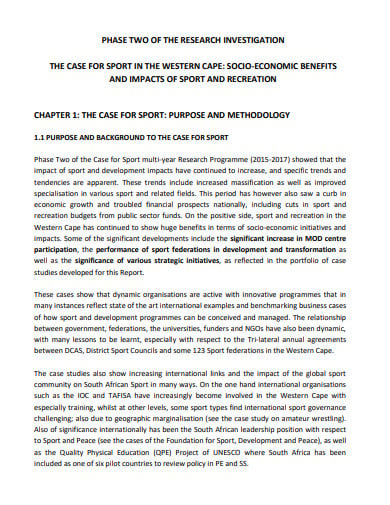 sportanddev.org
sportanddev.org11. Design Research Investigation Template
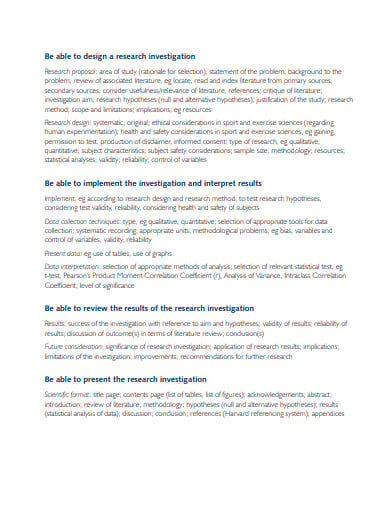 qualifications.pearson.com
qualifications.pearson.comWhat is Research?
The term research comes from the Middle French word “recherche,” which means “to go about searching,” the term itself being derived from the Old French term “recherche” which is a compound term meaning “search.” Research at a basic level is composed of three steps: 1. Ask a question. 2. Collect data to answer your question. 2. Respond to the question. It would have to be a familiar operation. Every day you engage in problem-solving and start with a question, gather some facts, and then shape an answer Research is relevant for three reasons.
- The research contributes to our awareness: Building on the knowledge means researching by educators to add to the existing information on issues.
- Research enhances practice: It is also essential as it indicates practical advancements.
- Research teaches about political debates: It also gives policy-makers data when researching and discussing educational subjects.
Often a research paper is defined as an expansion on previous fieldwork. Such projects could be used to create additional knowledge on a subject, or, in the case of a school research project, it can be used to further the research prowess of a student in preparing them for future employment or reports. Basic research’s primary purposes (as compared to applied research) refers to the documentation, exploration, analysis, or research and development (R&D) of techniques and programs to improve human understanding. Research approaches rely on epidemiologist that differ significantly within humanities and between sciences.
What Are the Forms of Research?
Original Research
Original research is also known as primary research. It is research that is not based exclusively on a summary, review, or synthesis of earlier research publications. This material has the character of a primary source. The intent of original research is not to present the existing knowledge in a new form (such as in a summarized or classified form) but to produce new knowledge.
Original research can take on various aspects based on the discipline to which it relates. It generally comprises of direct or indirect observation of the researched subject(s) in experimental work such as in the laboratory or the field, documenting the methodology, results, and conclusions of an experiment or a set of experiments, or offering a novel interpretation of past results. There are commonly several new mathematical results generated in analytical work, or a new way to approach an existing problem.
Scientific Research
Scientific research refers to a systematic way to collect information and to harness curiosity. This research provides scientific information and theories for explaining the nature of the world and its characteristics. It offers many useful applications. Scientific research is generally funded by public agencies, charities, and private groups along with many businesses.
Scientific research, according to their academic and implementation disciplines, can be subdivided into different classifications. Scientific research is a very common criterion for evaluating an educational institution’s ranking. However, some argue it is the organization’s incorrect evaluation, as the quality of research may not tell about the teaching quality.
Research in the Humanities
Humanities research involves various methods such as hermeneutics and semiotics for instance. Humanities researchers do not usually search for the eventual correct response to questions, instead, investigate the problems and details surrounding it. History also matters and history may be social, economic, political, cultural or multicultural. Historical research is one form of humanities science, expressed in historical method. Historians make use of primary sources and other documentation to study a subject extensively, then to compose histories in the form of historical accounts.
Artistic Research
Artistic research is also seen as ‘ practice-based research’. It can take shape when both the research and the object of the research itself are considered creative works. In its quest for knowledge and truth, it is the debatable body of thought that offers an alternative to purely scientific methods in research. One of the features of artistic research is that in contrast to the classical scientific methods, it must recognize objectivity. As such, the use of qualitative research and intersubjectivity as tools for applying evaluation and logical analysis is analogous to the social sciences.
Historical Research
The historical method involves the methods and instructions that historians use to study and then write history using historical sources and other evidence. Historians use several different historical frameworks in their work, under the headings of external critique, internal questioning, and synthesis. It includes lower criticism and critique of the senses. Although items may differ based on the topic and the researcher, most formal historical research includes the following concepts:
- Origin date identification.
- Proof of localization.
- Authorship recognition.
- Data analysis.
- Integrity identification.
- Credibility attribution.
How to Conduct Research?
Research has often done using the research model hourglass structure. The hourglass system begins with a wide research spectrum, relying on the information required through the project method and then expanding the research in the form of discussion and results. The key elements in carrying out the research are as follows:
- Identification of the issue
- Review of Literature
- Determine the objective
- Determine specific questions
- Determine the framework
- Develop a hypothesis
- Select a methodology
- Collection of data
- Verification of the data
- Evaluation and interpretation of data
- Reporting and evaluation research
- Publish the results and recommendations
The steps depict the whole research process; however, they should be seen as an ever-changing extensive process instead of a fixed set of steps. Most research begins with a general statement of the problem, or rather, the objective to engage in the study. The review of the literature identifies flaws or holes in previous research that justify the study. Often, a literature review is performed before a research question is identified in a given subject area.
A disparity in existing literature, as recognized by a researcher, creates a research query afterward. The investigative question may be parallel with the hypothesis. The assumption to be examined is the hypothesis. The researcher is gathering data to test the hypothesis. The researcher then analyzes and perceives the data through a multitude of statistical methods and engages in what is regarded as an empirical investigation. The findings of the analysis are then reported and evaluated in rejecting or failing to dismiss the null hypothesis.
The researcher may end up discussing avenues for further investigation. Several researchers, however, support the reverse method: beginning with articulating conclusions and discussing them, moving “up” to identify a research issue that arises from the conclusions and literature analysis.






